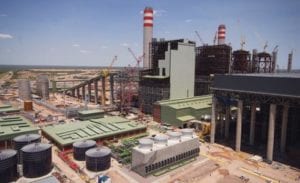The industrial water treatment chemicals (WTC) market in Sub-Saharan Africa’s power generation sector is gaining significant momentum.
This is primarily due to Eskom’s biggest capacity expansion program in 20 years, which is likely to raise its water consumption levels in coal-fired power stations to 67 200 million cubic metres per annum (MM3/a) in 2018. The WTC market will benefit from the commissioning of the Medupi and Kusile coal-fired power stations which will add 9 564 MW to the grid and heighten the demand for chemicals by an average of 7.3% each year until 2018. New analysis from Frost & Sullivan, Analysis of the Water Treatment Chemicals Market in Sub-Saharan Africa’s Power Generation Industry, finds that the expenditure on water treatment chemicals was $19.6 million in 2013 and estimates this to reach $27.9 million in 2018. The study covers scaling and corrosion control chemicals, chemicals for resin regeneration and cleaning, coagulants and flocculants, biocides, as well as pH adjustment chemicals. South Africa currently offers the highest growth opportunities to industrial WTC manufacturers due to the prevalence of coal-fired power. However, Nigeria is the next frontier for phenomenal growth.“The high annual rise in GDP over the past few years, and the recent privatisation of the power generation sector, is expected to lead to phenomenal capacity expansion initiatives in Nigeria over the next 5 to 10 years,” says Frost & Sullivan Chemicals, Materials & Food Research Analyst Doreen Nabaho. “Already, Nigeria is looking to commission 10 gas-fired power plants that will double the current national output and result in an increased need for WTC.”
However, the market for industrial WTC is being adversely affected by Eskom’s difficulty in financing the current coal-fired projects in its pipeline due to the global trend towards cleaner energy. Furthermore, Eskom’s finances are being exacerbated by the escalating costs of its on-going builds due to delays associated with financial constraints and engineering challenges. For example, the cost of the Medupi power station currently stands at $10.5 billion from the initial estimates of $9.1 billion (excluding interest and the flue-gas desulphurisation unit, which is valued at approximately $4.0 billion). “Participants should penetrate countries in Sub-Saharan Africa that are witnessing rapid urbanisation and manufacturing developments to widen their market potential,” advises Nabaho. “Markets outside South Africa will be especially lucrative as there is limited competition and no additional government restrictions such as Broad-Based Black Economic Empowerment (B-BBEE), which has been a major obstacle for international water treatment companies.”






